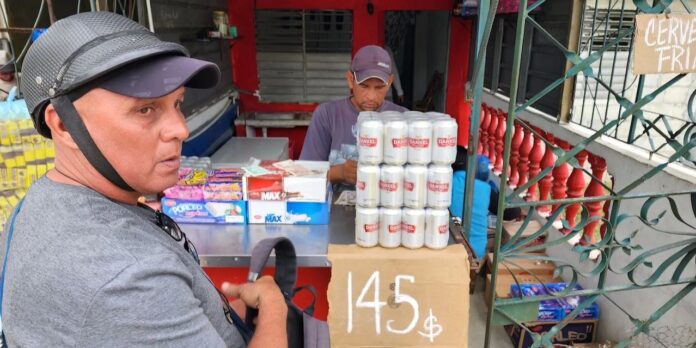The average Cuban wonders what will happen if the government, through its harassment, manages to completely eliminate Mipymes.
HAVANA, Cuba – Not long ago, the Minister of the Food Industry, Alberto López, appeared on the television program Mesa Redonda, where he advocated for small and medium-sized enterprises (Mipymes) to import goods and supplies in order to provide them to state-owned companies. According to the official, this would allow these entities to utilize their full installed capacities and thus meet their production plans.
In other words, what was outlined in Resolution 56 — which states that Mipymes can only engage in wholesale trade if it is done with state entities — is a measure that has been in the works for quite some time. Once again, the Cuban regime resorts to administrative mechanisms, at the expense of economic strategies, to achieve its goals.
The official narrative claims that everyone will benefit from this type of wholesale activity. Non-state actors will supposedly gain from the experience of government-owned trading companies, and operations will be carried out at lower costs, which could lead to price reductions.
However, it is evident that the measure is aimed at hindering the economic progress of Mipymes and preventing these businesses from escaping government control. It is as if the machinery of power seeks to gradually nationalize these non-state actors. In fact, during the Ninth Plenum of the Central Committee of the Communist Party, there was talk of incorporating the management of Mipymes into the national economic plan. This is all under the guise of the much-touted integration of state and non-state forms of economic activity, when in reality, it is about the chains the State imposes on non-state actors to keep them tied down.
The present and future outlook for Mipymes appears bleak from every perspective. Those engaged in retail trade will continue to face pressure from the authorities: price caps, forced sales of products, excessive fines, elimination of any form of tax exemption, and oversight by the newly established National Institute of Non-State Economic Actors, led by Mercedes López Acea. López Acea is a declared opponent of market relations and was responsible for dismantling several supply-and-demand agricultural markets during her tenure as head of the Communist Party in the capital.
For Mipymes that choose to engage in wholesale trade with the State, one of the main obstacles they face is the specter of nonpayment. State entities are notorious for failing to pay — or simply refusing to pay — private producers who sell their goods to them. This is a common problem, for instance, with farmers who sell their livestock and crops to state collection companies and then fail to receive timely or adequate payment.
Imagine, then, the harm that a Mipyme could suffer if it sells to the State but does not receive the payments it needs to continue its production or import cycles.
There is widespread agreement about the demotivation — and the uncertainty — that overwhelms the owners of non-state Mipymes in the face of relentless government harassment. It is very difficult to work with enthusiasm and invest money when the future is so uncertain. Reports have already surfaced of some Mipymes shutting down, while highly demanded products such as chicken, sausages, and powdered milk are beginning to disappear from the shelves of these non-state economic ventures.
Meanwhile, the State is offering fewer and fewer options to feed the population, which increasingly relies on the goods provided by Mipymes and other non-state actors. This is why ordinary Cubans watch with pessimism as inspectors and other authorities crack down on Mipymes and wonder what will happen if the government succeeds in fully suffocating these private businesses.
ARTÍCULO DE OPINIÓN Las opiniones expresadas en este artículo son de exclusiva responsabilidad de quien las emite y no necesariamente representan la opinión de CubaNet.
Sigue nuestro canal de WhatsApp. Recibe la información de CubaNet en tu celular a través de Telegram.




